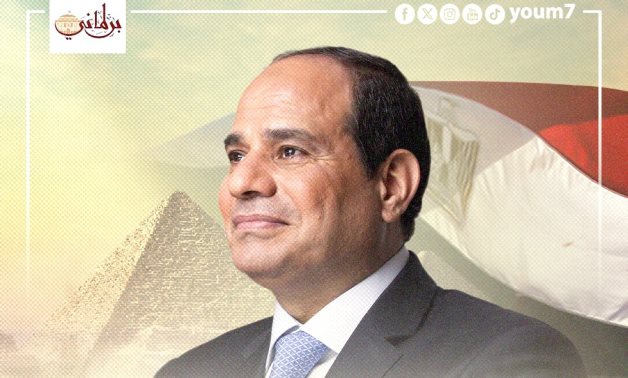At the economic event accompanying the first Egypt-EU summit in Brussels, President Abdel Fattah El-Sisi addressed over 300 executives and representatives from more than 60 European companies, alongside 100 Egyptian firms and 15 international financial institutions. He emphasized Egypt’s firm commitment to advancing its development path and invited European investors to view Cairo as a reliable production partner.
President El-Sisi highlighted that the European Union remains Egypt’s top trading and investment partner, accounting for approximately 27 percent of Egypt’s external trade in 2024. Additionally, EU investments represented around 32 percent of Egypt’s foreign direct investment (FDI) stock that same year. He noted that discussions during the event focused on strategic topics such as establishing a European investment corridor in Egypt to access African and Arab markets, deeper integration into European supply chains, and the central role of the private sector in driving growth.
The summit marked a continuation of the upgraded strategic partnership announced in March 2024 during European Commission President Ursula von der Leyen’s visit to Cairo, followed by her participation in the first Egypt-EU Investment Conference in June 2024. President El-Sisi expressed appreciation for von der Leyen’s pivotal role in advancing bilateral cooperation and reaffirmed Egypt’s dedication to strengthening this strategic alliance on sustainable and practical grounds.
He outlined four key advantages Egypt offers investors: first, macroeconomic resilience demonstrated by credit rating upgrades, a flexible exchange rate policy, rising FDI inflows, and an annual growth rate of 4.4 percent in the final quarter of the fiscal year 2024/2025—up from 2.4 percent in 2023/2024—despite regional and global challenges. Second, Egypt’s strategic location provides access to over 1.5 billion consumers across Africa, the Arab world, and the EU through free trade agreements and key maritime and land corridors. Third, Egypt offers a comprehensive investment incentive package, including tax exemptions, ease of profit repatriation, competitively priced energy, skilled low-cost labor, and political and institutional stability. Fourth, the newly launched Egypt-EU Investment Platform aims to channel European capital into priority sectors and foster public-private partnerships aligned with national development goals and European expertise.
President El-Sisi urged European businesses to see Egypt not merely as a promising consumer market but as a trusted manufacturing hub capable of serving global and European markets efficiently and cost-effectively. He stressed the growing urgency to restructure supply chains amid global trade disruptions, energy crises, and maritime security fluctuations, positioning Egypt as an industrial and technological ally that can help Europe secure and diversify its supply sources while boosting international competitiveness.
He called for mutually beneficial investment partnerships in strategic sectors such as pharmaceuticals and vaccines, traditional and electric vehicles, fertilizers and petrochemicals, renewable and green hydrogen energy, electronics, artificial intelligence, defense industries, and logistics infrastructure. He emphasized that investments in Egypt would yield not only financial returns but also contribute to a more balanced regional economy, enhance stability in the southern Mediterranean, and strengthen European companies’ positions in rapidly expanding markets.
El-Sisi invited business leaders to visit Egypt to experience firsthand its investment climate, opportunities, incentives, and safeguards. He also called on the European Commission to expand risk-mitigation and insurance tools for European investors in Egypt and urged EU governments to support technology transfer and joint industrial localization for mutual benefit. He concluded by calling the summit a launching point for fruitful cooperation and a better future.
— news from Parlmany
